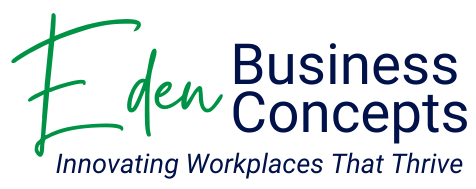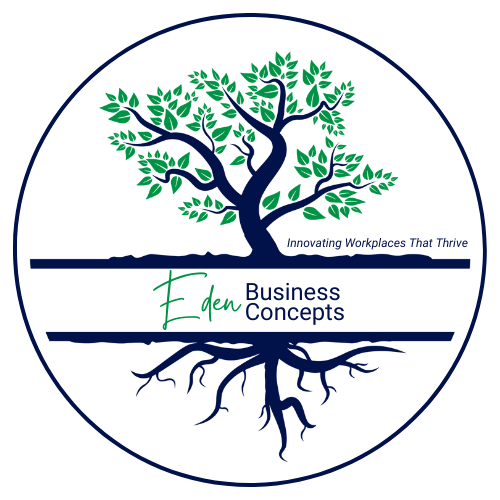Investing in your heart first brings the highest return for your workforce and your company. John Erickson provides five checkpoints for developing a heart-investment strategy.
Resource Library
Greater Lafayette Commerce - Investing In A Healthy Heart [Recording]

Along The Way Life's Journey - Episode 40: Leading Leaders
John Erickson, joins Carl Buccellato, host of Along the Way Life’s Journey Podcast, to discuss his role with Convene and his work to help emerging leaders.
Building a Trauma-Informed Workplace [Recording]
A trauma-informed culture provides the best path through crisis.
- Types of crisis organizations face
- Understanding the trauma-inducing effects of crisis
- Building the skills and resources to navigate trauma
- Creating a trauma-informed workplace
When Hearts Collide: Redeeming the Cost of Conflict [Recording]
Conflict is inevitable – You can learn to make it productive.
- You and conflict: Destroy, Panic, Run, or Engage?
- Discover a healthy path through conflict
- Growing in resilience and grace

Should I Stay Or Should I Go? [Recording]

Your Motivations Can Ruin Relationships - The Brett Snodgrass Podcast
Workshop: Why Are You A Leader? [Recording]
A unique tool for understanding your impact as a leader.
- What is the root motivation that drives your leadership?
- What are the root motivations of your team and key employees?
- How will you capitalize on those motivations?

Root Motivations: What is your primary motivation in life & relationships?
Discover what motivates you as a leader – Respect, Value, or Approval. The question of what hurts more helps to focus on a fundamental human longing: respect, value, or comfort. When our basic need is met, we feel satisfied and energized to do our best. When it is not met, we feel defeated and unmotivated.
Dig Deeper into The Root Motivations of Respect, Value, or Approval with this comparison chart.
How to talk with a coworker who’s having a tough time.
Everyone has bad days at work — and some of us have more than others. Whether you’re frustrated because you didn’t hit your sales numbers, or angry that your colleague was promoted instead of you, or sad that layoffs have impacted your department, negative emotions have a place at work, like it or not.
What Google learned in its quest to build a perfect team.
7 years ago, Google set out to find what makes the ‘perfect’ team — and what they found shocked other researchers.
Assessment: How Well Does Your Team Function?
Teams are a critical part of today’s workforce — but they’re often unsuccessful. One wide-ranging study looking across industries found that 75% of cross-department teams are dysfunctional.
The 3 Elements of Trust
And which one is most important for leaders.
by Jack Zenger, Joseph Folkman
Traeger’s CEO on Cleaning Up a Toxic Culture
The company essentially had to start from scratch.
by Jeremy Andrus
Why Visionary Leadership Fails
Top executives need to make sure middle managers are aligned with them.
By Nufer Yasin Ates, Murat Tarakci, Jeanine P. Porck, Daan van Knippenberg, Patrick Groenen
The Feedback Fallacy
For years, managers have been encouraged to praise and constructively criticize just about everything their employees do. But there are better ways to help employees thrive and excel.
by Marcus Buckingham, Ashley Goodall
The Collaboration Blind Spot
Too many managers ignore the greatest threat in launching cross-group initiatives: provoking defensive behaviors.
by Lisa B. Kwan
The Surprising Power of Simply Asking Coworkers How They’re Doing
It builds connections and helps us all feel less lonely.
by Karyn Twaronite
For a Team to Work Smoothly, You Need 3 Things
If your colleagues aren’t working well together, there are a few ways to change the team dynamic. Everyone — including you — should consider how they can improve three things: internal self-awareness, external self-awareness, and personal accountability.
- Internal self-awareness is about understanding how your values affect your decisions. To improve, consider how your emotions and assumptions in a situation lead you to act a certain way. Resist the urge to act until you understand what’s driving you.
- External self-awareness is about understanding how your actions affect other people. To improve, pay attention to how your colleagues react to things, and ask yourself (or them) what could be behind their behavior.
- Personal accountability helps you asses how you are contributing to a problem. To improve, accept that you probably share some blame for what’s going wrong. Use internal and external self-awareness to think carefully about how you may need to change.
by Jennifer Porter


